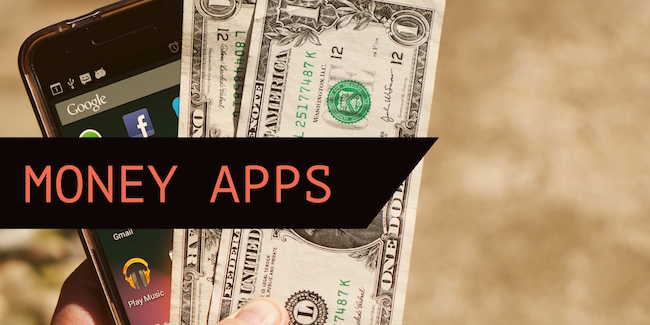Fintech is on fire right now! With so many new startups and products being created, I thought I’d make it easier for you to decipher between the many choices available. Below are three money apps that can positively influence your financial life. If you’ve ever had spare change, tipped a server, or complained about transaction fees, this article is for you.
Acorns
The first of the three money apps we’ll talk about today is acorns. Much of the financial advice we hear about these days are about automating your finances. Acorns will do just that in a novel way. Ever hear those stories of people throwing their spare change in a water jug? After years of accumulation, I’ve heard of vacations have been paid for, debts paid off, or what have you. Acorns takes your spare change and invests it, thereby supercharging your pennies with the power of compound annuity interest.
The process starts by linking up your card to the app. Acorns will round up your purchases to the nearest dollar and invest the difference. The option is also available to systematically transfer your chosen amounts from your bank account (daily, weekly, or monthly.) All of this done for a low monthly fee of $1 up to a $5,000 balance. Anything above $5,000 will cost .25% per year, much less than the ordinary financial adviser will cost. Can you believe that? Acorns also has a feature called “Found Money.” If you shop with a partner brand, they will invest in your Acorns account. Not a bad deal!
Lastly, the money will get invested into Acorns investment portfolio. These portfolio’s were created by financial professionals with the help of Nobel Prize-winning economist, Dr. Harry Markowitz.
Tip Yourself
Tip Yourself is a truly original concept that plays off of the financial psychology angle That’s what really hooked me on choosing this app, that and the passion it’s owner has for the business (I ran into him at an event recently, where I learned of his mission.) It’s an app that allows you to reward yourself for something special. Work a couple extra hours this week? Accomplish a good deed? Tip Yourself! The program allows you to easily transfer a couple dollars to your savings account and share your reasoning with its built in community platform. Seeing the good deeds and achievements of others can be motivating. Hopefully motivating enough for you to see a higher than normal balance in your savings account at the end of the month.
Interestingly enough, there is no automated option available due to the founders vision of improving the users relationship with money. As noted on their blog, “With Tip Yourself, we hope to make an impact on that relationship. We want to help shift it from stress to one of empowerment and reward. That’s why a mindful action not an automated solution is needed.” We all have different needs and methods to our madness, Tip Yourself may be good for you, if you’re motivated by recognition of your actions (as many of us are).
Robinhood
Many times, especially in my early days of learning money, I’d have the urge to be in and out of a stock. I might want to catch that 1 or 2 day move, if some bad news came out or the market takes a dive for no reason. The problem is that transaction fees cut into the profit, especially for a beginner who may be trading a couple thousand dollars. Think about it, if you make a $500 trade that goes up 10% in a day, you’ll make $50 profit. Not bad for a quick buck until you add in the $7 fee to buy and $7 fee to sell. Your $50 just turned into $36. Oh and don’t forget to pay the tax man! If your effective tax rate is 15%, the profit is now down to $30. Imagine what the power of compound interest can do with that kind of savings! So, where does Robinhood come in?
Robinhood is one of the money apps that doesn’t have transaction fees. Millennials are excited about this. If your mind works anything like mine, you’re thinking this is too good to be true. One of my first thoughts was wondering how the company makes money. Though in a slightly different manner than most financial institutions, they make their money on the float. Their website notes that they collect interest on uninvested balances, which does not come out of the customer’s pocket. Sounds to me like they are holding those balances in an interest bearing bank account and keeping the interest. As someone who has audited banks for a living, this isn’t uncommon. Millennials seem to be okay with this trade off, I know I am.
I encourage you to see how these money apps fit into your life and comment below.














